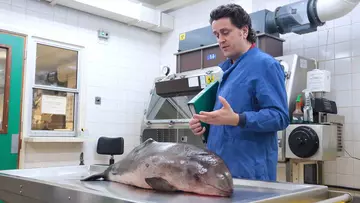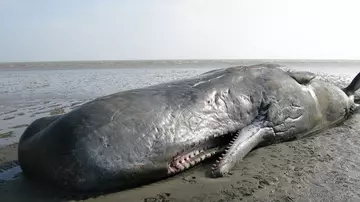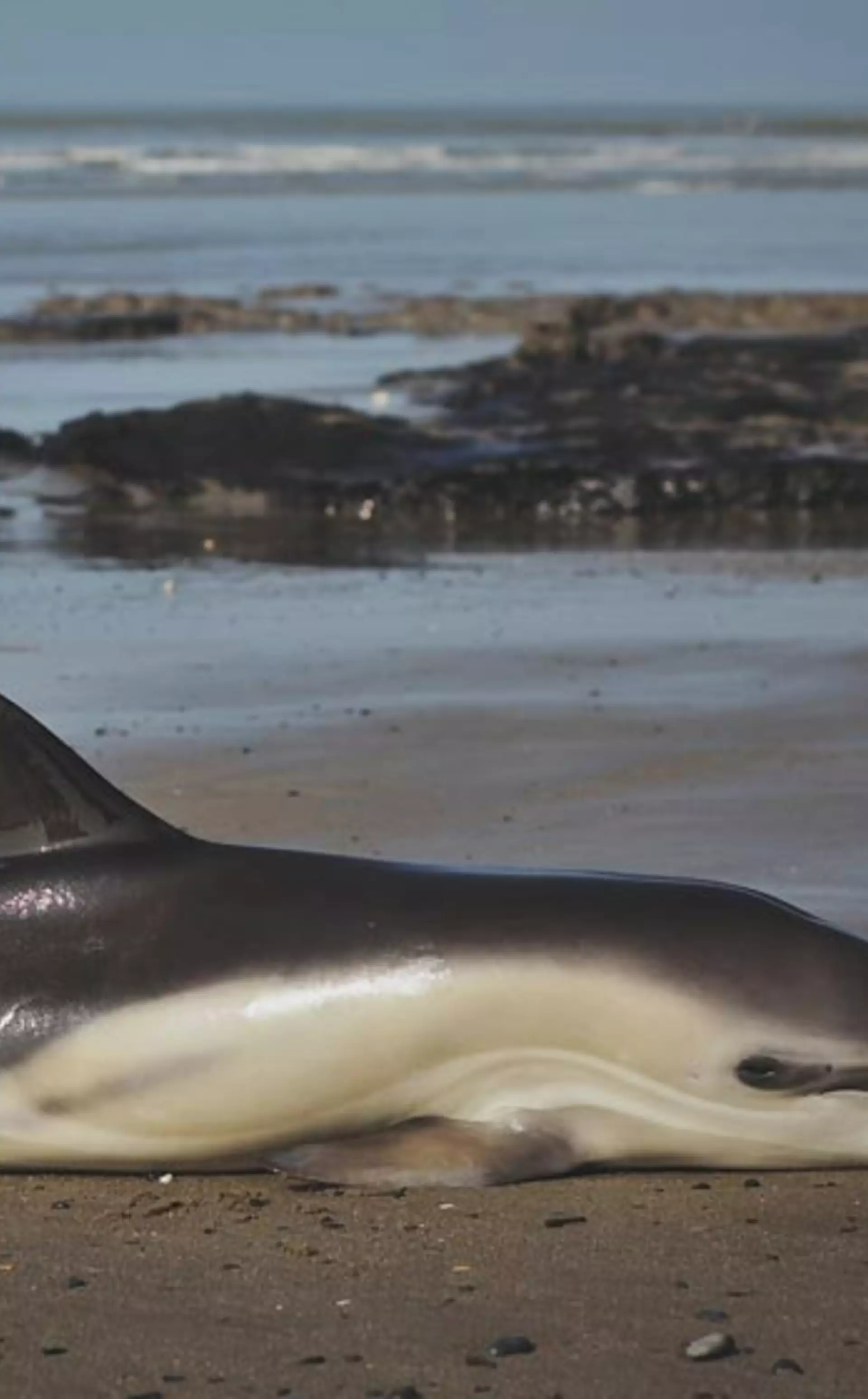
ZSL
Zoological Society of London
Report reveals causes of UK stranded porpoise, dolphin and whale deaths highlighting infectious disease and bycatch in fishing gear.
A total of 4,896 harbour porpoises, dolphins and whales (cetaceans) were reported washed up on UK shorelines between 1 January 2011 and 31 December 2017, according to a seven-year review published today (6 September 2019) by the UK Government and led by ZSL.
Over the reporting period, researchers from the collaborative UK Cetacean Strandings Investigation Programme (CSIP) recorded 21 different cetacean species – nearly one quarter of the total currently known to science – as well as six species of marine turtle and several species of large bodied sharks.
The CSIP documented the highest number of strandings in a single year since the programme began in 1990
The CSIP documented the highest number of strandings in a single year since the programme began in 1990, with more than 1,000 reported in 2017. The team also investigated several large-scale mass stranding events involving multiple animals, including one on 22 July 2011, in the Kyle of Durness, Scotland where 70 long-finned pilot whales stranded together.
ZSL’s Rob Deaville, cetologist and report lead said: “We routinely produce reports like this for Defra and the devolved governments of Scotland and Wales, who co-fund the programme and 4,896 is an increase of about 15% on the previous seven-year period. It’s difficult to say conclusively what’s driven this rise, but it’s potentially associated with multiple causes, including increases in local reporting effort and seasonal variation in the population density of some species.”

Bycatch accounted for 23% of common dolphin deaths and 14% of harbour porpoise deaths
Researchers also conducted 1,030 post-mortem examinations over the period of the report, to identify why individual animals had died. Infectious disease and incidental entanglement in fishing gear - also known as bycatch - were two of the most common findings, although the likelihood of a particular cause of death varied between species. For example, bycatch accounted for 23% of common dolphin deaths and 14% of harbour porpoise deaths. Others caused directly by humans included 25 animals killed by ship-strike and a single Cuvier’s beaked whale that suffered a gastric impaction following the ingestion of marine litter in 2015.
Rob explains: “As both nets and propellers can cause characteristic injuries, we can readily diagnose causes of death which are directly related to human activity, such as bycatch and ship-strike. However, the total proportion of deaths linked to the impact of humans is actually likely to be higher over the period covered by this report. For example, cases of infectious disease may be associated with exposure to chemical pollution, including legacy pollutants such as PCBs (polychlorinated biphenyls), which can have immunosuppressive effects.”
Rob adds: “Although in some respects the data paints a bleak picture, there are still positives to be drawn. Between 2011 and 2017 we recorded 21 cetacean species including one – the dwarf sperm whale – that had never been previously seen in the UK. That’s nearly a quarter of all currently known species, reflecting the range of diverse habitats around our coast.”

By investigating stranded cetaceans, we can also gain a real insight into the wider health of the marine environment
“It may be that, as the climate continues to change, the pattern of strandings around the UK may also change but we’ll have to wait to see what future reports find. That’s the value of monitoring programmes like the CSIP; we produce long-term, continuous data that picks up changes in the UK’s marine biodiversity that other approaches might miss. By investigating stranded cetaceans, we can also gain a real insight into the wider health of the marine environment and the frankly extraordinary wildlife that can be found around our shores.”
ZSL works around the world to understand the health of wildlife and the ecosystems they live in. Monitoring programmes – like the CSIP – allow scientists to understand how populations of species are changing and to identify the factors that are driving those changes. Only by understanding the reasons behind the decline of a species can conservationists take measures to protect them.
